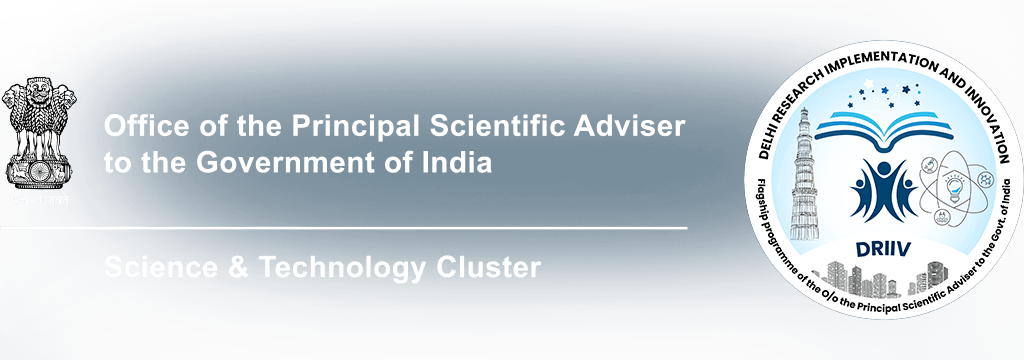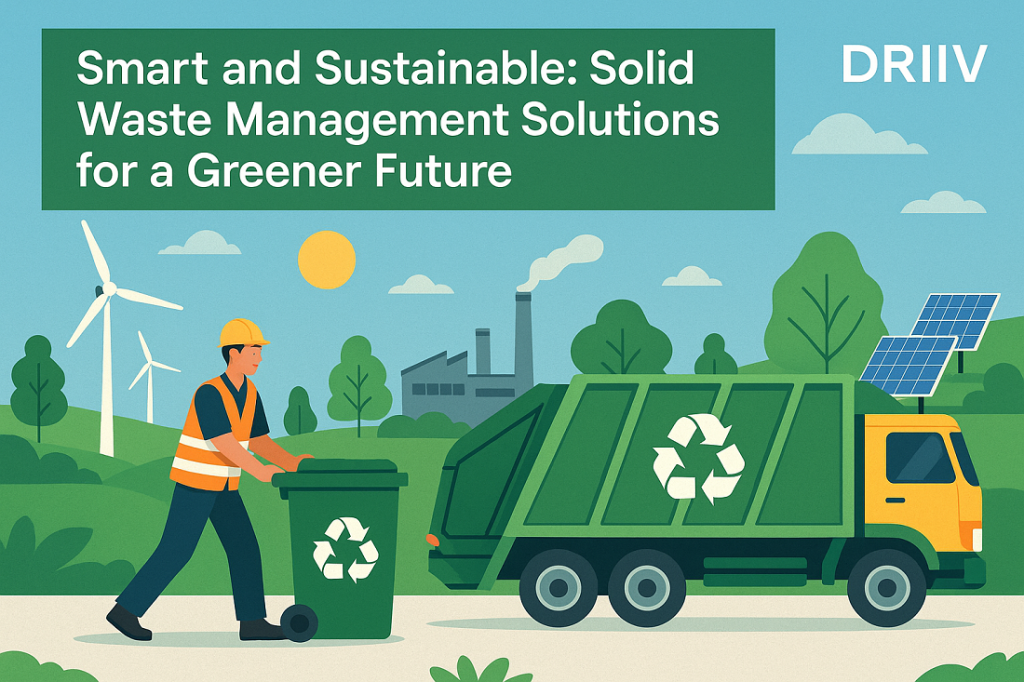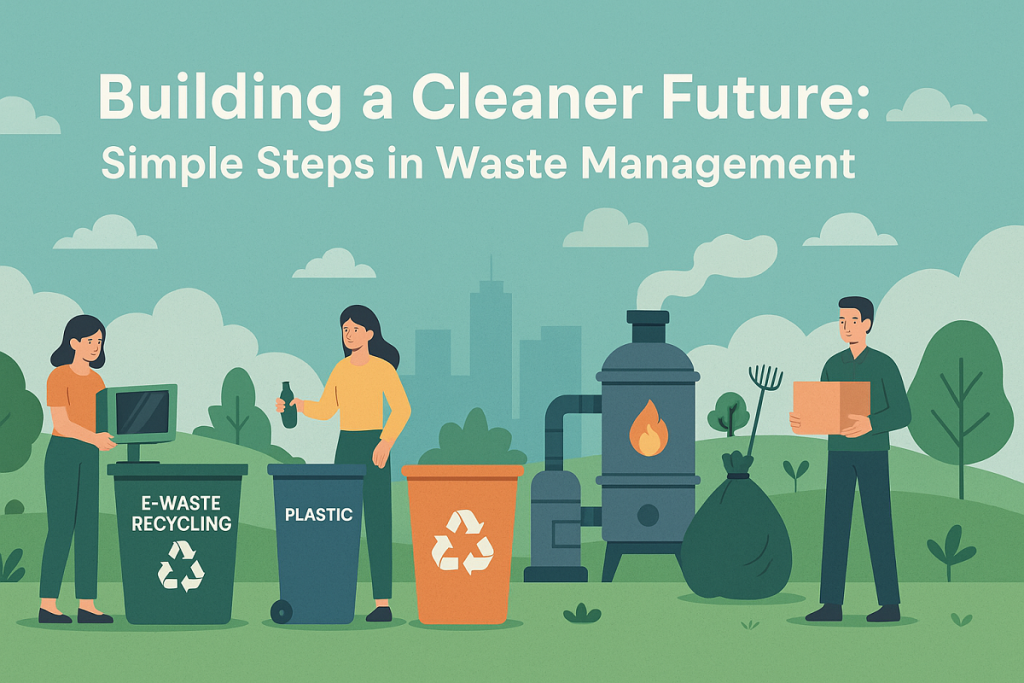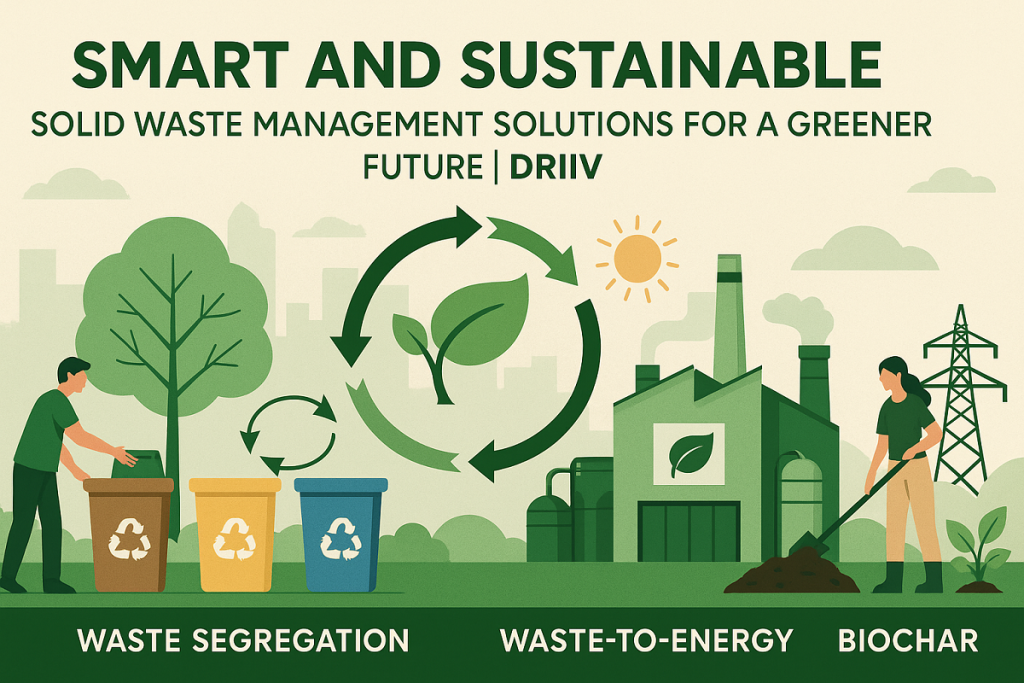In today’s world, managing waste is not just about keeping our surroundings clean—it’s about protecting our environment, supporting public health, and ensuring a sustainable future. At DRIIV, we believe in turning waste into a resource by developing solid waste management solutions that contribute to environmental sustainability and innovation.
Let’s explore what solid waste management means, the challenges India faces, and how waste management solutions, including waste to energy technology, are shaping a cleaner, greener future.
What is Solid Waste Management?
Solid waste management refers to the process of collecting, treating, and disposing of solid materials that are discarded by households, industries, and other institutions. This includes everyday items like food waste, plastics, paper, construction debris, and more.
A well-planned solid waste management system includes:
- Waste collection
- Segregation of biodegradable and non-biodegradable waste
- Transportation
- Recycling or composting
Final disposal or conversion using waste to energy methods
Why is Solid Waste Management Important?
India produces more than 150,000 tonnes of municipal solid waste every day. Unfortunately, a large portion of this waste ends up in landfills, polluting land and water, and releasing harmful gases into the atmosphere.
Without proper solid waste management solutions, we face:
- Increased air and water pollution
- Soil contamination
- Health risks like respiratory diseases and infections
- Greenhouse gas emissions from decomposing waste
- This is where sustainable and innovative waste management solutions come in.
DRIIV’s Approach to Environmental Sustainability
At DRIIV, we promote environmental sustainability through science and technology-based interventions. Our aim is to create impactful models for solid waste management that:
- Reduce the burden on landfills
- Convert waste into usable products
- Promote community participation
- Use waste to energy technology for power generation
Our multi-stakeholder model includes startups, government bodies, and R&D institutions working together to solve complex waste problems in India.
Innovative Solid Waste Management Solutions
Let’s take a closer look at the types of waste management solutions supported by DRIIV.
1. Waste Segregation at Source
Educating people to separate wet waste (food, garden) and dry waste (plastic, paper, glass) is the first step. Segregation improves recycling rates and reduces contamination in waste streams.
2. Composting of Organic Waste
Biodegradable waste can be composted into organic fertilizer, reducing the need for chemical alternatives and returning nutrients to the soil.
3. Recycling and Reuse
Plastics, paper, glass, and metals can be recycled and repurposed, reducing the demand for virgin materials and saving energy.
4. Waste to Energy Technology
DRIIV encourages the use of waste to energy technologies that convert non-recyclable waste into usable forms of energy like:
- Electricity through incineration
- Biogas through anaerobic digestion
- Fuel from plastic waste using pyrolysis
- These technologies help in reducing landfill usage while producing clean energy.
5. Bio-mining and Landfill Reclamation
Legacy waste from old landfills can be treated using bio-mining to recover land, sort waste, and recover valuable resources.
6. Digital Monitoring and IoT Sensors
Smart bins, GPS-enabled waste collection vehicles, and real-time dashboards are being adopted to track and improve waste management operations.
Waste to Energy: Turning Trash into Treasure
One of the most promising areas in solid waste management is waste to energy technology. Here’s how it works:
Combustion: Non-recyclable waste is burned at high temperatures to produce steam that powers turbines to generate electricity.
Biogas: Organic waste like kitchen or agricultural waste is decomposed by bacteria to release methane, which can be used for cooking or power generation.
Pyrolysis: Plastic waste is heated in the absence of oxygen to produce oil and gas that can be used as fuel.
- By investing in these solutions, India can:
- Reduce dependency on fossil fuels
- Manage growing urban waste
- Reduce GHG emissions
At DRIIV, our aim is to promote and scale waste to energy innovations that are safe, efficient, and eco-friendly.
Community Engagement for Sustainable Waste Management
No waste management solution is complete without people’s participation. DRIIV actively involves local communities, municipal bodies, and schools to:
- Conduct awareness drives on waste segregation
- Encourage zero-waste living
- Support local composting and recycling efforts
- Promote responsible consumer behavior
DRIIV’s R&D and Pilot Projects
As a Science & Technology Cluster, DRIIV supports pilot projects that test new technologies for solid waste management and waste to energy conversion.
Some key initiatives include:
- Collaboration with startups working on decentralized waste treatment plants
- Incubation support for companies building low-emission incinerators
- Partnerships with municipal corporations to implement smart waste tracking systems
- Research into circular economy models to repurpose waste into new products
- Environmental Sustainability: Our Long-Term Goal
Environmental sustainability is about meeting the needs of today without compromising the ability of future generations to meet theirs. At DRIIV, we align our solid waste management solutions with this vision by:
- Reducing pollution
- Conserving resources
- Encouraging green innovation
- Creating sustainable employment opportunities
By integrating waste to energy technology, recycling, and community engagement, we are paving the way for a cleaner and greener India.
The Way Forward
India’s waste crisis needs scalable and science-based solutions. With rapid urbanization and increasing consumption, solid waste management must become smarter and more sustainable.
DRIIV is committed to being a part of this transformation through:
- Technology co-creation and pilot testing
- Industry-academia-government partnerships
- Skill development and training for waste workers
- Promoting circular economy practices
Together, we can achieve environmental sustainability and make waste management solutions accessible and impactful across India.
FAQs
1. What is solid waste management?
Solid waste management is the process of collecting, segregating, recycling, and disposing of solid waste in an environmentally friendly way. It helps reduce pollution and conserve resources.
2. How does DRIIV contribute to waste management in India?
DRIIV supports research, innovation, and collaboration among startups, government bodies, and academia to build effective solid waste management solutions and waste to energy technologies.
3. What is waste to energy?
Waste to energy is the process of converting waste materials into usable forms of energy like electricity, biogas, or fuel. It helps reduce landfill waste and supports clean energy production.
4. How does waste management relate to environmental sustainability?
Proper solid waste management reduces pollution, conserves natural resources, and cuts down greenhouse gas emissions, all of which are essential for environmental sustainability.
5. What are the latest solid waste management solutions?
Some latest solid waste management solutions include smart bins, decentralized composting, digital tracking systems, and clean waste to energy incinerators.
Final Thoughts
Solid waste is not just a problem—it is an opportunity. An opportunity to innovate, to build a circular economy, and to protect our environment for the next generation.
At DRIIV, we are dedicated to delivering sustainable, technology-backed, and community-driven solid waste management solutions that transform challenges into green possibilities.
Let’s turn today’s waste into tomorrow’s resource.
DRIIV – Driving India’s Waste Revolution with Innovation and Sustainability.




